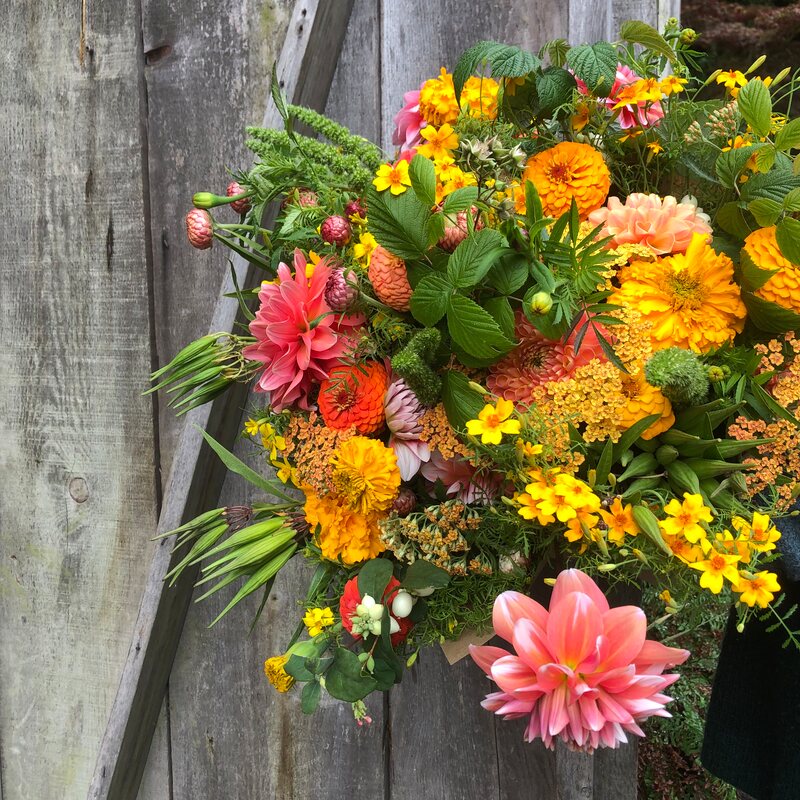|
A reflection from Denise
Poised on the edge of ugliness, a flower whose petals are turning brown. I never liked to keep them—a word of farewell discreetly whispered, and out they go, the discolored water after them, the vase to be scrubbed. A few flowers dry into straw-crisp comeliness without fetor. But for most beauty is balanced upon the poignance of brevity. . . . “Nothing gold can stay,” Johnny recites from a Robert Frost poem in the novel The Outsiders. I thought of it this week when a customer lamented the fleetingness of peaches and nectarines and another customer worried the lettuce mix would soon be gone. (“I’m addicted,” he said. “I have to have it.”) A few years ago, when I felt all hope was lost in a world gone mad (not that everything’s sorted and righted itself as I write), activist and journalist Rebecca Solnit reminded me that it’s hopeful to remember that “everything changes,” both the good and the bad. The garden with its flowers and vegetables is a perfect example of this impermanence, “beauty balanced upon/the poignance of brevity.” My grandson and I recited a list of fruits we’ve enjoyed this summer: strawberries, then raspberries, blueberries and now, oh glory, even when they grow on invasive vines, blackberries. “Watermelon!” he cried and then his face fell. “All done now.” We ate prune plums from his backyard tree, enjoyed peaches and nectarines that dripped down our faces and chins. And just like that, they were done. We sat quiet for a moment, lamenting our losses. The sun was waning; rain is forecasted for Friday. Then his eyes lit up. “Apples?” he suggested hopefully. And after a moment, he fairly shouted, “And pears!” Each of these beautiful gifts of the west coast comes and goes in its place in the cycle of the garden year. Even the long-anticipated tomatoes, most of us agree, sighing. “I’m not ready for squash,” I said to a customer, who had piled her basket high with every variety. “I’ve been waiting for them,” they said eagerly, anticipating squash curry for dinner. Here’s a wonder. We live in a part of the world with four distinct seasons. The garden produces according to the soil tended to and the seeds planted by Paul and Angela and their team, fails and thrives depending on the rain and the sun that attend the growing, and then dies back to give way to compost, feeding the land even as it lies fallow. The seasons remind us to savour each bite, take in each colour and texture, smell each scent, in the here and now. And then winter comes to give the land and the farmers a much-needed rest before beginning all over again in the spring. It’s splendid, isn’t it? Beauty balanced upon brevity. . . . Flowers of straw, everlasting, are winter makeshifts pleasant to see, but not to touch. Their voice is a faint crackling under the hand. By spring the settled dust is dull upon brittleness, and someone brings in posies of fragrance from the meadows, violets, the forgotten, now-to-be-known-freshly primrose; dew is on them, what could one ever desire but to sink with closed eyes into their cold, sweet, brief, silent music? Poem excerpts are from Denise Levertov’s “A Woman Pacing Her Room, Rereading a Letter, Returning Again and Again to Her Mirror”
0 Comments
|
Newsletter:Subscribe to our weekly Newsletter to get info about the weekly produce and fabulous new recipes. Categories
All
Archives
April 2024
|
|


